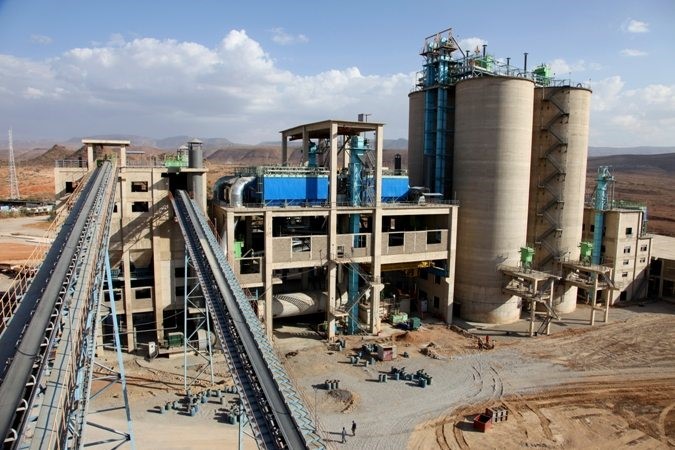By Dr. Stephen Lazi Ph.D
Pre industrial revolution started in the 16th – 19th centuries in Europe and America, with the improvement of the standard of living of their citizen through the agricultural boom, cultivated by slaves. Some pre-industrial economy like classical Athens, Romans civilization, the medieval Islamic (caliphate) states were all able to source for better standard of living of their people through agriculture.
However, developed economies such as United Kingdom, America, France, Germany, Russia and the Asian Tigger all had their take on stages of industrialization from agriculture which facilitated unprecedented population growth with equilibrium work force in farming.
Industrialization simply means the scientific and socio-economy growth of a nation that improves the standard of living of its citizen. Having said that Africa’s industrialization dates back to 14th to 15th century Egyptian civilization.
Egypt experienced agricultural revolution as it were. The accumulation of capital allowed for strong agricultural investment in scientific core capital and application of technologies which they used to dominate the world economy, enabling the industrialization in other countries like Hungary, Austria, Poland and many other European countries in the 1880s.
The Asian continent in immersing industrialization in the 1870s through military might had a greater influence on economic reconstruction that promoted technological industrial development which eventually transformed and snowball into entrepreneurial evolution that triggers economy growth.
In the era of cold war, European nations such as Spain and Italy saw a moderate industrialization during in the 1950s and 1970s which integrated European economy through their levels of development as well as those of the socialist European countries.
INDUSTRALIZATION IN AFRICA
From the above, most Africa countries did not follow the footprint of Egypt. They rather relied on a poor farming system that could barely feed more than three families. Although there was a resemblance of governance for most Africa state, this governance was not knowledgeable enough to drive the concept of development that will energize industrialization. While pre – colonial state of Africa were masqueraded in peasant farming before the coming of colonial masters who divided Africa to the various region of their choice.
The first industrialization that took place in Africa was on arable agricultural produce driven by the colonial commerce in exchange for slaves and cowries as a medium of exchange. At the abrogation of the slave trade by the United State Federal Law (The Act Prohibiting Importation of Slaves) in 1807 which took effect in 1808, gave Africa leverage for upward looking for the emancipation of past set-backs resulting from such continental abuse and deration imposed on Africans.
African started looking up toward economic and technological empowerment at the instance of the colonial masters who came to impose their own foreign business and political ideologies. This led to another delay in the development of the continent as it were. During the colonial era, Africa under the supervision of the Western world started copy-developing in technology. That is, manual skill acquisition and educational acquisition were sold to Africans whose saw it as a New Order while advance skill in technology was kept from their reach.
In the area of power/energy construction and economy, Africa has moved forward fairly. These take off stage commenced short-lived after the independence of Africa Countries living Africa to inwardly drive their development process toward industrialization which has remained a solidarity movement with vest potentials on the continent to springboard if harness properly. In spite of the foregoing, Africa still remains a fertile potential continent for massive technological advancement and development if, priority is given to economic policies that will wheel growth.
In a 21st century, Nigeria, South Africa, Angola and other potential African states are in the road path to industrialization. While the Western states are gradually migrating to the continent of Africa to harness their investment potential in order to advance wealth.
Every country of the world had to advance their technological and economic base to be able to be called developed economy. In the same vein, had they created lots of job opportunities for their citizens. Although Africans seems to be growing in this regard, there are spirited determination to develop in the area of technology.
In late 1990s, President Obasanjo in his eight years of leadership as Nigerian President, seriously created the economic platform for entrepreneurial revolution and industrialization of the economy, such as opening up of the petroleum sector to investors, deregulation of telecommunication in Nigeria that empowered small and medium scale enterprise (SMEs), job creation and social development. Nija sate was another mile to Obasanjo’s sleeves as a quest to industrialization, a pivotal to the current growth of the Nigeria economy. This bridge the gaps of existing unemployed ration experience in the 1990s to early 2000s.
However, it is not untrue that Africans are grossly unemployed, a situation where the workable age bracket can’t be gainfully employed. This is sad. Africa is most blessed with natural and human resources that are yet to be explored as. Industrialization is a factor of science, technology discovery and entrepreneurial development. Africa has these above mentioned potentials to industrialize if only African leaders are purpose driven.
The global economy is technologically and entrepreneurial driven, while the government creates an enabling environment upon which investor operates. Another booster to industrialization is adequate and constant energy supply which Most African Countries have not been able to overcome, and the theory of sentiment by African Leaders has hampered industrialization in Africa.
Despite the current investment invasion in Nigerian oil and gas sector coupled with its sectorial reform, massive drive on the resuscitation of the agricultural sector, and the giant stride taken on energy development in most African States, when completed, it will massively generate employment that will bridge the current unemployment gap witness in the continent.
The present economy recession experience in the country is due to lack of industrial and developmental ideology that will revolutionize gains from internally generated revenue (IGR) that foreign earnings like it where in oil boom and indigenization decree of the 1970s in Nigeria. Industrialization is not only an aged form of new order rather, it is an economic engine that energizes wealth, technical skills developmental technologies and a broad to employment.
A nation is said to be underdeveloped when a larger proportion of her workable age bracket are not resourceful or gainfully engaged in economic productive labour. Africa’s industrialized profile is sleeping and yet to get the height it deserves in the committee of nations.
Another positive impact of industrialization on an economy is the improvement of disposable income of its citizen. This implies free-flow of wealth among citizens, it will reduce inflation /economic recession tentacles and eliminate high unemployment ratio. When Africa is able to get into industrialization (the take-off stage of economic growth), every socioeconomic and political index will automate itself into massive development. Thus, redirect our preferences and thoughts of an average African to want to create, initiate, explore, and discover to invent new frontiers that will proudly compete in the globe. In addition, the environment will attract foreign investors and eliminate imperialist capita flight to other continents.
Industrialization will enhance modern challenges such as a change in lifestyle, educational improvement, improvement in medical services, urbanized transportation system, improve the living standard and energizes small and medium scale enterprises (SMEs), which is the hallmark for socioeconomic advancement.


